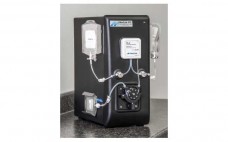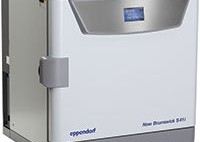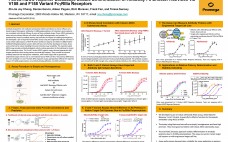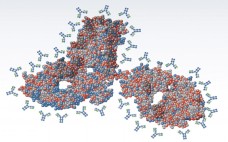MaxCyte flow electroporation is a universal, clinically validated transient transfection platform for rapid, high-quality cell transfection in the development and production of vaccines and cellular immunotherapies.
Sunday, June 1, 2014 Daily Archives
One Billion Mesenchymal Stem Cells in Eppendorf BioBLU 5c Single-Use Bioreactor at 3L Scale
This webcast features: Ma Sha This Ask the Expert webcast features Dr. Ma Sha, Director of Technical Applications for Eppendorf, Inc. In this webcast, presented to a live audience on May 6, 2014, he demonstrated the success of large clinical-scale culture of human adipose-derived mesenchymal stem cells (AdMSCs) in a BioBLU 5c single-use bioreactor at 3L scale. You can view the webcast here (Registration Required) Link to paper mentioned in presentation: A Novel Method for the Expansion of Mesenchymal Stem…
Paired ADCC Reporter Bioassays Enable Differentiation of Antibody Fc Effector Activities via V158 and F158 Variant FcyRIIIa Receptors
Antibody-dependent cell-mediated cytotoxicity (ADCC) contributes to clinical efficacy of a broad range of therapeutic antibodies. FcÎłRIIIa polymorphism of individual cancer patients are correlated with clinical efficacy of some of these antibody drugs. Classic ADCC cytotoxicity assays rely on primary effector cells, which are highly heterogeneous and variable. To quantitatively measure antibody activity and evaluate the impact of FcÎłRIIIa polymorphism, we developed a pair of reporter-based ADCC assays using two engineered effector cell lines in Jurkat that stably express an NFAT-RE driven…
Due Diligence of Early Stage Technologies: Achieving Rapid Product Development with Low R&D Costs
Increased understanding of human diseases at molecular and cellular levels is leading to development of novel life-science technologies. Such advancements typically pertain to discovery and manufacturing of novel human therapeutics, new modes of drug delivery, and novel diagnostic technologies. The majority of those technologies are developed by early stage biopharmaceutical companies that have a greater appetite for risk than do larger companies. Early stage biopharmaceutical companies, however, have limited capital raised through personal sources, angel investors, venture capital, or government…
Managing Contract Relationships with Quality Agreements: Keeping in Mind the New FDA Guidance
Using contract manufacturing organizations (CMOs) to augment your supply chain is not a new phenomenon in the pharmaceutical industry. One of my first projects in industry involved developing a process for a recombinant protein while manufacturing materials for clinical trials. My team recognized that the company did not have the money to build a plant for manufacturing an unproven product, and it was not bullish to the risk of investing, so we turned to a contract manufacturer in Austria. That…
Manufacturers Open Their Wallets for Outsourcing: Accessing Technical Expertise and Cutting Costs
Budgets for outsourcing activities have rebounded in recent years as outsourcing has gradually become a more common and core strategic decision made by bioprocessing companies. Some of the increase in outsourcing activity over the past few years has no doubt been spurred by cost-cutting behavior. But increasing evidence indicates that contract manufacturing organizations (CMOs) are providing specific technical skills that clients may have shed during leaner recession years. In our latest annual industry report (1), we take a close look…
Industry Experts Convene in New York to Discuss Latest Innovations: A BPI Special Report
As the biopharmaceutical industry continues to mature and grow, so too does the need to educate a broader audience of biopharmaceutical professionals interested in hearing, understanding, and applying the latest science and technology trends that support and in many cases are transforming today’s bioprocesses. To reach this extended and engaged audience, BioProcess International created the BPI Theater Series: a live, interactive program that provides bioprocessing content to traditional, noncore biopharmaceutical conference programs. It provides attendees with the opportunity to interact…
Higher-Order Structure Comparability: Case Studies of Biosimilar Monoclonal Antibodies
Great successes for monoclonal antibody (MAb)–based biologics over the past decade have provided many valuable options for patients combating some of the most serious diseases in the world, including cancer and autoimmune diseases. MAbs and antibody–drug conjugates (ADCs) are among the fastest growing biologic segments in development, with hundreds of candidates currently under clinical study. Meanwhile, society is facing the challenge of increasingly higher costs in healthcare including the cost of pharmaceuticals. With an aging population in many parts of…
Managing Collaboration Across the Extended Organization
In an increasingly competitive life-science landscape that includes numerous mergers, acquisitions, and changing business models, the demand for collaboration is increasing at such a pace that it exceeds information technology (IT) capabilities. The need to manage and control this collaboration across the supply chain has become mandatory. That is particularly true for larger organizations with hundreds or thousands of partners that are finding new ways to connect, interact, and conduct business. Individual businesses are forming contractual affiliations that extend beyond…
Biosimilars Awaken CROs
Biosimilars are revolutionizing the bioprocessing industry. Over the years, company CEOs have pushed different models, expanding and closing down huge amounts of internal manufacturing, research and development, and quality control facilities. Sometimes services were pushed to Asia, only to get brought back a few years afterward when a new CEO was appointed. Mergers and acquisitions further complicated those ideas. Consequently, many biopharmaceutical companies now have “gaps” in their drug development service provisions. Filling those gaps will fall on contract research…










